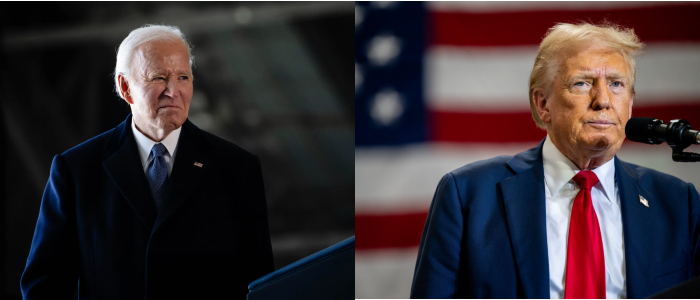Hawaii leaders are speaking out against an executive order by President Donald Trump that opens the door for large-scale mining of the ocean floor, both within U.S. waters and internationally.
The move has drawn sharp criticism from environmentalists, Native Hawaiian leaders and lawmakers who argue that the policy threatens Hawaii delicate marine ecosystems and cultural heritage. The order, signed Thursday, “establishes the U.S.

as a global leader in seabed mineral exploration and development both within and beyond national jurisdiction,” according to a text released by the White House. Trump’s order instructs the National Oceanic and Atmospheric Administration to expedite permits for companies to mine in international and U.S.
territorial waters. “The United States has a core national security and economic interest in maintaining leadership in deep-sea science and technology and seabed mineral resources,” Trump said in the order. The decision comes amid ongoing discussions surrounding the United Nations’ High Seas Treaty, which aims to protect marine biodiversity beyond national jurisdictions.
While the U.S. participated in the treaty’s negotiation, it has not ratified the agreement.
The Trump order marks a significant divergence from the global consensus, as most nations have agreed to join an independent International Seabed Authority that would govern mining of the ocean floor in international waters. In a letter sent to Trump on Friday, U.S.
Rep. Ed Case, D-Hawaii, decried the potential ecological and environmental harm caused by seabed mining, which he said “recklessly prioritizes short-term economic gain over the current and long-term health of our oceans,” and warns that the move could lead to “irreversible damage” to marine ecosystems that are intricately connected to Hawaii’s own natural environment. In January, Case introduced the American Seabed Protection Act and the International Seabed Protection Act, two bills designed to suspend new seabed mining permits in U.
S. waters and call for a global moratorium on international seabed mining. The proposed legislation emphasizes a precautionary approach, prioritizing environmental protections while further research is conducted on the ecological impacts of deep-sea extraction of minerals like nickel, cobalt and manganese that are used in advanced technologies.
The Clarion-Clipperton Zone, a large East Pacific area southeast of Hawaii island and stretching toward Mexico, has emerged as a prime target for the mining industry. While little is known about the area’s marine ecosystem, it is considered one of the most biologically rich regions of the ocean. Trump’s order could pave the way for the Canadian-based Metals Co.
, a prominent seabed mining company, to receive an expedited permit from NOAA to mine for the first time. “With a stable, transparent, and enforceable regulatory pathway available under existing U.S.
law, we look forward to delivering the world’s first commercial nodule project, responsibly and economically,” said Gerard Barron, CEO of the company, which wants to extract the minerals from Clarion- Clipperton Zone. The potential disruption of the area’s ecosystem concerns local environmental groups, who are advocating for stronger protections and a more localized approach to managing ocean resources. Some Native Hawaiian leaders say they are worried about the executive order’s impact on Hawaii’s cultural and environmental landscape.
Solomon Kaho‘ohalahala, a seventh-generation Hawaiian and an elder of the Papahanaumokuakea Marine National Monument Reserve Advisory Council, called the policy an affront to Native Hawaiian values and responsibilities as ocean stewards. “What I am concerned about is that there is no regard by this administration to look at the potential long-term effects of deep-sea mining,” Kaho‘ohalahala said. “It is our cultural genealogy that we’re talking about, and this administration gives no consideration to that.
” Kaho‘ohalahala also expressed concern over the U.S. circumventing international agreements, noting that the U.
S. has not ratified the High Seas Treaty and thus does not have a seat at the table in discussions about mining regulations. He warned that this could set a dangerous precedent, one that might lead to mining activities closer to Hawaii’s shores in the future.
Maxx Phillips, who runs the Center for Biological Diversity’s Hawaii and Pacific islands program, said the executive order could lead to industrial-scale mining in Hawaii’s waters, jeopardizing not only marine life, but also culturally significant areas. “The water surrounding our islands are some of the most biologically rich and culturally significant in the world,” Phillips said. “This order opens the door for industrial-scale mining near our shores, threatening fisheries, whales, coral ecosystems and marine life found nowhere else on Earth.
” Phillips said the administration “is prioritizing foreign investments and military stockpiles over indigenous knowledge, ecological health and global sustainability” and that the decision is a “reckless assault on all of the positive work we’ve been doing to protect our planet’s most fragile and least understood ecosystems.” Wayne Tanaka, director of the Sierra Club of Hawaii, said the issue is not just about politics or a particular administration, but about protecting the planet’s future. “The core issue is an industrial system that exploits the earth for short-term conveniences, fundamentally harming our environment and threatening the well-being of our children and grandchildren,” he said.
The New York Times and Reuters contributed to this report..
Politics

Hawaii leaders blast Trump’s order allowing seabed mining

Hawaii leaders are speaking out against an executive order by President Donald Trump that opens the door for large-scale mining of the ocean floor, both within U.S. waters and internationally.















